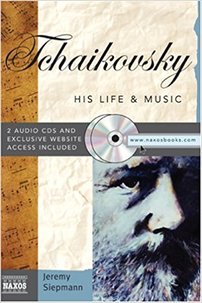 In Acts 20 I believe we see the secrets for healthy ministry and for healthy leaders. Paul is talking with the Ephesian believers he has served for two years. He says to them “You yourselves know how I lived among you the whole time from the first day that I set foot in Asia, serving the Lord with all humility and with tears and with trials that happened to me through the plots of the Jews; how I did not shrink from declaring to you anything that was profitable, and teaching you in public and from house to house, testifying both to Jews and to Greeks of repentance toward God and of faith in our Lord Jesus Christ” (Acts 20:18-21). First, Paul lived openly before them. Second, he passionately loved them. Third, he selflessly served them. Fourth, he was grounded in the Gospel. Openness, passion, selflessness, and groundedness. These are the ingredients of a godly leader. In this post we’ll look at the second quality of a godly leader, passion. Passion When reading any of Paul’s epistles it is hard to miss his passion for serving Jesus Christ. It exudes from his being. We see his passion in verse 20, “I did not shrink from declaring to you anything that was profitable...”. He did not shrink to declare anything that was profitable. His passion was for God and their benefit. There was a fire in side of him. This is what, I believe, makes Paul both exciting and intimidating. We like his fire but when we look in the mirror sometimes it’s hard to find the same fire in us. Let’s take a look at those three words that describe the fire in Paul and consider what they mean: shrink, anything, and profitable. The word translated shrink means: to draw back, withdraw or be timid. Timidity is never something Paul could be accused! He was a fighter. And he was a fighter because he was passionate. This passion reminds me of Noah who built that huge ark amid the taunts of the people around him, and King David who went to face Goliath when no one else was brave enough to face him, and Peter who moved past his sins and failures and followed Christ even to death. They did not hold back or get weighed down by adversity but were fueled by a passion for God. British actor Hugh Laurie reveals the timidity that is in many of us. He says, “Messing up my lines or making a fool of myself is where you find my fears. Like a lot of English people, I'm prey to embarrassment - the dread that everyone's sort of sniggering at you, that you're going to look like an idiot. I think that sort of halts us all.” It is easy to be burdened by fears, inadequacies, others, or our past. But when a love for God is in our heart, and He firmly and gently reigns, then we can face any fear. That love was in Paul’s heart. Anything in this verse can mean different things in different contexts but it is used to show an all or nothing inclusivity/exclusivity. It can mean: any, none, all, or nothing. So in this context it means Paul held back nothing, he told them everything. This goes against our desire to tell people only what they want to hear or to share with them out of our pet interests. Paul was willing to tell the Ephesians whatever they needed in order to be followers of Jesus. And what did he share with them? A similar verse at verse 27 tells us, “I did not shrink from declaring to you the whole counsel of God”. He passionately declared to them all of God’s Word. Paul did not shrink to declare anything that was profitable. Something that is profitable is something that helps or advances or grows. It is for one’s good. Paul makes the profitability of God’s Word clear in 2 Timothy 3:16-17: “All Scripture is God-breathed and is useful for teaching, rebuking, correcting and training in righteousness, so that the servant of God may be thoroughly equipped for every good work.” Sometimes we can be so wrapped up in ourselves or in our ministry that we can forget that what we do is for God’s glory and for the benefit of others. We offer something good when it is a benefit for another person’s health. We offer something good when we fan the flame in someone else. Paul’s passion was not self-serving or miss-guided. His passion was in living out his love for God and his love for others (Matthew 22:37-40) and he desired to see that passion within everyone he met. This passion is what made Paul such a great leader. Prayer My God, and Savior, grow in me the passion that Paul and other heroes of the faith had. Let it be a passion for You, Your Word, and for other people. Let me have the courage to “fan into flame the gift of God” that is in me (2 Timothy 1:6). And may I remember that this passion is what brought Jesus to the cross to bear Your holy wrath against our sins. In Jesus name, Amen. Photo from http://playguitar.com/how-to-easy-campfire-blues/ Hugh Laurie quote from brainyquote.com Scripture quotations are from The ESV® Bible (The Holy Bible, English Standard Version®), copyright © 2001 by Crossway, a publishing ministry of Good News Publishers. Used by permission. All rights reserved.
2 Comments
 In Acts 20 I believe we see the secrets for healthy ministry and for healthy leaders. Paul is talking with the Ephesian believers he has served for two years. He says to them “You yourselves know how I lived among you the whole time from the first day that I set foot in Asia, serving the Lord with all humility and with tears and with trials that happened to me through the plots of the Jews; how I did not shrink from declaring to you anything that was profitable, and teaching you in public and from house to house, testifying both to Jews and to Greeks of repentance toward God and of faith in our Lord Jesus Christ” (Acts 20:18-21). First, Paul lived openly before them. Second, he passionately loved them. Third, he selflessly served them. Fourth, he was grounded in the Gospel. Openness, passion, selflessness, and groundedness. These are the ingredients of a godly leader. In this post let’s look at the first quality of a godly leader, openness. Openness “You yourselves know how I lived among you...” Paul’s life was an open book. He didn’t hide behind titles or learning. He lived so that people could see who he really was at anytime of the day or night. Believe it or not, I was the perfect Christian until I got married. I mean, I did everything pretty much just right (at least I thought) until I started living with another human being. When I started living with my wife Lisa I began to see the true nature of my heart through our relationship and conversations. Somehow, I hadn’t realized that I wasn’t always a joy to be around. That sometimes, I was lazy, or inconsiderate, or selfish. These things had never dawned on me. So, my bride Lisa knows the real me, and now, years later, my kids know the real me. But if I am careful...if I’m really careful, I can still keep most people in the dark about who I really am. I can smile, and be generous and likeable in public during the week and only let the “real me” out at home. This was not what Paul did. He lived openly and he showed them who he really was. And in the text we see his heart – he was humble, and he cried tears, and he endured trials. He could not have said he was humble if the Ephesians had seen him as a proud jerk. They would have stopped him right there. And he could not have said something about his tears if they hadn’t seen him shed some over the years. And he could not have cited trials if they had not witnessed any. He could only say these things because they were evident in how he lived. Living life open to other people can be scary but it is the only way for healthy ministry. And Social media, though helpful at times, is not where we live out in front of people. We are always smart enough to put our best foot forward and make our lives look as interesting as we want them to be on Facebook or Twitter. It is only in honestly living and working with people, face to face, where God can begin to show us who we really are, where we need to repent, and we can learn to become dependent on His limitless grace. Prayer Heavenly Father, help me to live honestly and openly with other people. Help me share my faults and fears so they will see your grace at work in my life. Lord, have mercy on me when I repent of sin against others and lovingly shape me into the image of Christ. Amen. Photo: © by Charlie Pruitt (taken from, http://www.studiooutside.us/little-free-library/) Scripture quotations are from The ESV® Bible (The Holy Bible, English Standard Version®), copyright © 2001 by Crossway, a publishing ministry of Good News Publishers. Used by permission. All rights reserved.  I’ve written a couple sets of variations for the piano over the years – one a set of 12 variations on Jesus Loves the Little Children and another on a Korean folk melody – but I’ve generally looked down on the genre. Variations are a little too easy – you’ve got a tune and you just change a harmony here or give it a slightly different accompaniment there and you have a variation. Too simple. But that was of course before I started playing the Goldberg Variations of Bach. Wow! The Goldberg Variations are an amazing set of variations. But they are not variation on a tune as we would usually expect but on the ground or bass line of the first piece – the Aria. And Bach shows his inexhaustible imagination as he takes that bass line and develops permutation after permutation writing lyrical pieces, jigs, virtuosic showstoppers, to even fugues. And of course there are the masterful Enigma Variations by Sir Edward Elgar. Written for his friends these variations explore various moods, colors, and textures and at one moment touch the heart with melancholy and the next inspire a grand nobility. Those are only two examples of a wide variety of musical variations ever written but music is not the only place we see variation. In fact variety is all around us. What is a great dane to a dachshund other than another variation of the dog family. Or a lion to a common house cat but a variation of the cat family. And what about planets, stars, oceans, rivers, trees, clouds, and snowflakes. They are all variations on a particular subject. And what is a variation? It is something that has something in common with another object or being but also has key differences at the same time. So a leaf is related to all leaves as it is produced by a living plant and is organic but different at the same time from other leaves in both shape, size, and color. It is similar enough to categorize together but different enough to bring variety and enjoyment to us. And every human on the this planet is similar enough to other humans that even a baby can tell the difference between say a human and an animal but yet each and every human on earth is distinct and different and is fearfully and wonderfully made by the Creator. And we are made in the image of God – we are in fact a variation, if you will, of God-ness. And what are children but variations of their parents – taking similarities but also coming out distinctly their own. So all of this meditation on variations to announce that I am working on a set of variations on the tune, Terra Patris, or rather the hymn This Is My Father’s World. I started back at the beginning of 2017 and I plan on writing them all this year before I take them and develop them into a full scale orchestral piece (something I have never done before). The process has been a lot of fun but it is hard after a while to come up with fresh ideas without resorting to cliches (a march variation, a waltz variation, a alberti bass variation, etc…). I plan on adding new scores of my variations on this website and the first I want to show is my Variation VIII. It is a slightly jazzy and laid back variation. My plan is to keep writing variations, eventually develop a two piano version of the work, and then orchestrate that. Many composers have written a two piano version first before orchestrating so I thought that would be a smart choice for me as well. This also ensures that the musical structure and harmonies are sound before I begin orchestrating. Variations are all around us and are there for our enjoyment from God. Appreciate them and create some of your own.  INTRO Getting into classical music can be difficult – there is so much music it is hard to know where to start. And once you do find a piece of music you enjoy or a composer you are interested in it can be difficult to know where to go from there. That’s why I am so excited about the Naxos, His Life and Music, series of books. Naxos, a well know publisher of recorded music, has published a series of biographies of famous classical composers. But they are not just books but a multimedia tool for total immersion into the life and times of the composer. Each book comes with two music CDs that give a fascinating overview of the composer’s compositions throughout his life in various mediums of expression (chamber music, opera, songs, symphonies, etc…). Also, with the purchase of the book you get a password that allows you to access a website that has the full versions of the samples on the two CDs along with various other goodies. And one of the best parts of the series is each book is very inexpensive. For instance the Beethoven: His Life and Music was only $5.99 at Half Price Books and you can get the same book new on Amazon right now for $6.14 and used for as low as $1.87! Who can find a good book for that cheap let alone all that comes with it? So far the series contains the biographies of Mozart, Beethoven, Chopin, Mahler, Tchaikovsky, Dvorak, Wagner, Puccini, Mendelssohn, and Haydn. Let’s take a quick look at what you get with one of these books starting with the book itself. BOOK Each book is a sturdily made paperback, approximately 8 x 6 inches in size, and has around 200 pages. There is a CD within the front and back cover which, when taken out, make the book much lighter and easier to hold. Within you not only find a full biography of the composer accompanied by wonderful photos (or paintings) of people, places, manuscripts, and letters but you get the password to the dedicated website as well. In the back of the book you have a collection of short bio’s of all the people in the composers life, a bibliography, a glossary of musical terms, an annotated list of the pieces on the CDs and much more. Now the biographies are well-written, easy to read, and not too technical. They really immerse you in the time period of the composer as you see each step in their life from child to struggling musician to confident master. But these are not hagiographies where the composer seems to have a perennial halo on his head. Instead we see the good and bad of each composer’s character and the inevitable ups and downs of their relationships and careers. For instance, with Tchaikovsky we see the mysterious relationship he had with his patroness Nadezhda von Meck and his disastrous and inexplicable marriage to Antonia Milyukova. Also, when you reach the point in each of the composer’s lives when they composed a landmark piece there is an icon on the side margin of the page that tells you where you can find an excerpt on one of the CDs. This is were the immersion really begins to take hold. So let’s take a look at what you will find on the recordings. CDS Each one of the two CDs has over an hours worth of music by world renowned musicians. That is over two hours of music. But what is on them is what makes them so special. Usually when you buy a CD of a composers music you get music in a specific genre. Say you buy a Mozart CD. You may buy one that has a couple of his symphonies like symphony 40 and 41. Or you may buy one of one of his operas like, the Magic Flute. Or you may buy one that has several concertos on it like his horn or flute concertos. And of course you can buy a CD touted as “The Best of Mozart” or “Mozart’s Greatest Hits” that compiles either complete or partial pieces from several genres of his most well known works. But all of these options can be frustrating if you really want to get an overview of the composer’s life and work. Even the “Best of...” category only gives you pieces that you already know (Eine Kleine Nachtmusik, Turkish March, Jupiter Symphony, Rondo Alla Turca, various opera arias, etc…) and really moves you no closer to getting at the depth or breadth of the composer. This is where the Naxos CDs excell. They have various genres represented like the “Best of...” CDs but they showcase less known works by the composer (though important works), throughout his career, and in a wider range of genres. For instance, when I started listening to Puccini discs in the series my preconception was that they would just have famous aria after aria on them. Instead, to my pleasant surprise, many of the pieces were instrumental and where there were arias they were in context together with several other arias and instrumental pieces from the same opera. As I listened to the CDs in the series I could hear the experimentation and growth of each composer and see how they approached each genre. It is a fascinating way to get to know the composer. The selections on the discs remind me of one of those chocolate samplers you might enjoy but without the inevitable, unappetizing, “surprise” pieces. If the CDs in this series whet one’s appetite for the composer’s music the dedicated website serves up the full course meal. WEBSITE I have to confess that only recently did I access the free websites and that was after reading three books in the series and listening to their accompanying discs. What the websites boast and deliver are the full works of the excerpts on the CDs (full operas, symphonies, chamber works, song cycles, etc…), music excerpts from the composer’s contemporaries to put the composer in perspective of the whole of the classical music world, and a fascinating timeline that shows events in the composers life alongside events in the world in the areas of the arts, culture and politics. That last feature blew me away. I was seeing for the first time, in my experience, all these events that I knew from world history and see how they each connected to the life and music of this famous composer. And that was a revelation. In an information age such as ours it doesn’t seem like it would be a revelation but the fact is a lot of our information is just that, information, and it hasn’t been synthesized or processed and thoughtfully connected to other streams of information. Here, in one of these timelines, you can see the stream of a composer’s life intersect with the streams of art, culture, and politics and the immersion process goes a bit deeper. You are no longer reading history but experiencing it. No longer a spectator but a participant. CONCLUSION I may be a little overboard in my appraisal of the Naxos, His Life and Music, series but as a composer, and lover of books and biographies, I am truly in awe. When Naxos could have given us the books alone, or the CDs alone, or even the websites alone, they have offered it together as a complete package and at an affordable price. Thank you Naxos. Whether you are a classical music lover of many years, or just beginning to test the waters, please take a look at this series. I believe hours of beauty and enjoyment await you.  I don’t usually talk about my accomplishments very much but there are some things I’ve done in my life that I am proud of. I’m proud to have earned two degrees, one a B.A. in Music Composition and the other a Master of Divinity in Church Music. I’m proud to have played Gershwin’s Rhapsody in Blue with the Southern Seminary Orchestra…from memory (I’ve never been more nervous than before that performance)! I’m proud to have written and arranged a good deal of music. I’m proud to have four wonderful boys and a wonderful wife. I’m proud to live in America. I’m proud to be serving in a wonderful church that has a 200 year old heritage. There are things I am proud of. But there also some things I’m not proud of. I’m not proud of failing my senior year of high school. Oops (I did graduate the following year). I’m not proud of the time I tried to run away from home. I’m not proud of once thinking abortion was ok. I’m not proud of lying to my parents. I’m not proud of yelling at my kids. I’m not proud of treating my wife in unloving ways. I’m not proud of all the ways I’ve hurt other people and God by the things I’ve done or not done. I have pride and guilt in my life, accomplishments and regrets. When I rest in my accomplishments I feel good. When I remember and meditate on my sins and mistakes I feel sad. I can do the same thing with God. I have served Him for about 19 years now in churches and sometimes, when I think about my accomplishments, I can feel pretty good about my relationship with God. But when I think over those years about the sins I’ve committed or the apathetic way I have lived my life sometimes I can feel ashamed and God feels far away. Both of these views though, self-righteous pride and depressing guilt, do not in any way determine my relationship with God. I will never be good enough to ever earn His love and favor and I will never be bad enough to lose them. The only thing that matters in my relationship with God and determines my standing with Him is Jesus Christ. Now, pride in accomplishments or pride in a job well done is ok but self-righteous pride that counts me worthy for eternal life and discounts the perfect life that Christ lived in my behalf, so that I could be right before God, is sinful. And guilt can be useful, telling me something is wrong in my life, and can give me the kick in the pants to make things right but wallowing in guilt only discounts the death Christ died on the cross to reconcile me to God and is also sinful. I have things I am proud of but I am learning to “count them as rubbish, that I may gain Christ” (Philippians 3:8). And I have regrets but I need to remember that “as far as the east is from the west, so far does he remove our transgressions from us” (Psalm 103:12). This is what it means to rest in Christ. Resting in His accomplishments and resting in His punishment for our guilt. What are you proud of? What are your regrets? May they all “grow strangely dim in the light of His glory and grace”. |
AuthorMy name is Jeff Howard. I am a husband, father, pastor, and musician. ArchivesCategories
|
 RSS Feed
RSS Feed
